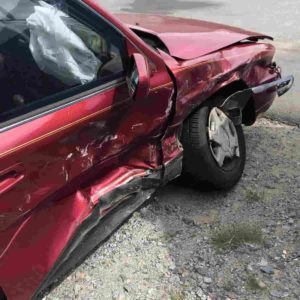When two or more vehicles are involved in a collision, determining fault can be challenging. Fortunately, liability often becomes clear after reviewing evidence from the scene.
When your car sustains damage—or you sustain injuries—because of poor road conditions, though, determining and proving fault becomes inherently more complicated. Everything from potholes to eroding shoulders can cause devastating crashes, but when only one vehicle is involved in the scenario, who is to blame?
According to CNBC, experts estimate that bad roads cost motorists $109 billion annually. When your car breaks an axle, batters a shock absorber, or blows a tire on a pothole, it is worth identifying the liable party so you can recover compensation for the repairs.
In most cases, a government entity is to blame. At the end of the day, those who are responsible for maintaining the roads should also be responsible for covering any costs that arise when they fail to do so.

The government agencies responsible for maintaining roads are often liable for accidents caused by poor road conditions.
Unfortunately for motorists, though, municipalities are unlikely to provide compensation for damage resulting from bad roads. TIME reports that although drivers have the right to file claims against their local government, they rarely receive a payout—and when they do, it is rarely enough to cover all the costs they incurred.
Luckily, there is another avenue for seeking compensation to cover repairs following vehicle damage. If your car needs work after driving on a bad road, you may be able to file a claim with your own car insurance provider. As long as your policy includes collision coverage and the claim is legitimate, your insurance company should accept it.
Unlike liability coverage, which is mandatory in most states, collision coverage is optional. This kind of insurance covers the cost of repairing or replacing your vehicle following an impact of almost any kind.
For example, collision coverage will kick in after a standard car accident, but it can also apply when you hit a tree or drive over a massive pothole that destroys the undercarriage. If your vehicle sustains damage from bad road conditions, the insurance adjuster can guide you through the claims process.
How Can You Avoid Damage from Bad Road Conditions?
Most people probably think of massive potholes when they hear the term “bad roads,” but there are all kinds of dangerous conditions that can result in a wreck, including:
- Shoulder drop-offs;
- Oil slick;
- Construction congestion;
- Visual obstructions;
- Fallen trees or utility poles;
- Ice patches; and
- Malfunctioning traffic signals.
The single most effective way to avoid any of the above hazards is reducing your speed. The slower you are traveling, the more time you have to respond should you come across a downed power line or congested work zone. Additionally, hitting a pothole at a lower speed will cause considerably less damage than hitting it while traveling much faster.
Maintaining your vehicle can also help you avoid potential collisions and minimize the damage caused by bad road conditions. For example, monitoring the depth of your treads and replacing the tires when they become bald will improve the car’s traction, even when traveling over ice or oil. Likewise, inflating the tires to their optimum capacity will reduce the extent of any pothole damage should you end up driving over one.
Motorists should make it a point to remain aware of their surroundings at all times, as well. Eliminate distractions like smartphones and navigation systems so you can simply focus on the road in front of you.
This will allow you to identify any hazards early enough that you have time to avoid them. It will also ensure you can make an evasive maneuver, like avoiding a pothole, by swerving onto the shoulder or into the other lane without hesitation.
